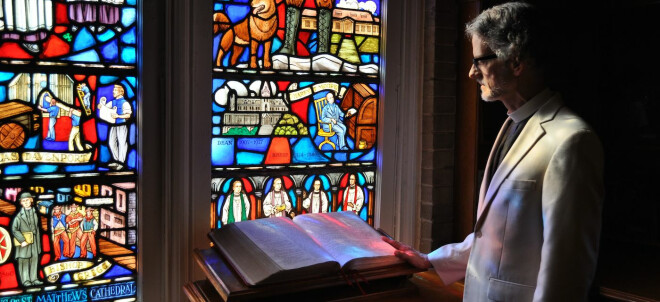Boston

Flying to an academic conference in a window seat, I peered out to where the land met the ocean—the stretch of sand, the white on the water. Closer in, I could make out a few landmarks and guess at others. Then it hit me: the last time I had flown here was a full decade ago. I often would visit Boston by train or, even better, by bus, but on that singular occasion by plane we had come here together.
Suddenly she was beside me, still alive. That day and the next we would get to see our daughter who, to our delighted surprise, would take us to the bronze ducklings on the Commons and the band shell on the river where the voiceless swan played his trumpet. (How well our daughter had been reared by her mother on Robert McCloskey and E. B. White!) My wife would walk slowly with her cane, often sitting, often smiling. Those two days with rich memories were, O so briefly, not in my past, but in my present.
Then the plane landed, and it was only me.
---
Augustine writes of the death of a close friend when he was around 20. The whole world became strange. Passageways which formerly would tell of his presence now said only, “He is not here.” His friend was nowhere in the world and as a result all of the world was strange to him. He was not at home and he found no place of rest.
That is the shocking disorientation of death’s initial separation. It is salved by time. It is also caught up, as Augustine came to know later in life, in the larger realities of God, his promises and his presence. But once the wrenching reality of death has been healed, there remains a strange vulnerability. You can go for months at a time with no sense of loss. There are memories but they are untinged by sorrow. But then, unexpectedly, it can be all over you all of a sudden.
---
The approaching end of the year and, layered upon it, the season of Advent, brings thoughts of how time is at work mysteriously. (Augustine goes on in his Confessions, famously if difficultly, to explore the meaning of time. It’s a natural move.) Sometimes the past is right with you: it becomes present again, and mixes itself with the present, and you don’t quite know if you are 25 years old or 50 or 75. Maybe, in a sense, you are all of them at once.
The scriptures teach us that God is past, present, and future. He created the world (but he also creates it, that is to say, gives it its being, at every instant). He is with us in our present, available at the slightest movement of prayer. And he is in the future, summoning us to live with hope, promising us that in the end history will be something that can be read (the Lamb is able to open the seals on the scroll of history!). The future of God is our salvation from “sound and fury, signifying nothing”: our lives, and the whole story of the universe, will be something meaningful.
---
I don’t have much personal experience of it, yet it seems to me that some people have not only those nostalgia-laden moments when the past erupts into our present life, but they also experience God’s future as a gift. It is a moment of confidence that all shall be well, and all manner of thing shall be well, as T. S. Eliot put it (quoting, of course, Dame Julian).
As we proceed though this season of deepening darkness, aware of how much has been lost and perhaps (some of it) irretrievably so, the future of God can beckon to us. We may not be able to glimpse what is on the other side of the darkness, yet still he is there, holding the outcome of all things in his hands.
---
Out & About. The next two Sundays I am teaching a Sunday class, “Who’s Coming?” at Church of the Incarnation in Dallas. The class is at 10:20 a.m. in the Memorial Chapel. On Dec. 3 the topic is “A Baby,” and on Dec. 10, “The Future of God.”
On Dec. 6, at 7 p.m. at the Church of the Good Shepherd in Dallas, I am to preach at the ordination of the Rev. Matthew Burdette to the priesthood. With commendable instinct, Matthew is taking this to be the eve of the feast of St. Ambrose.

